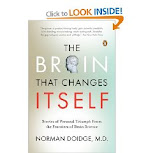
The latest hype is all about social search and as always a competent overview comes from the NYT (read all
here) which reviews yet another project with social search potential.
I have thought long and hard about this and somehow feel it falls in the same category of "can we make something that gives us irrefutable monitoring of how people feel about a brand online?". You know, the never-ending plight of PR people who have to monitor online and complain that existing tools work mechanically to interpret statistical recurrences of strings of words and combination phrases.
Truth of the matter is that, just like with robots who make cars, at some point you will need one decent human being with enough brains to put it all together. So while the monitoring systems may give you statistical inferences, it does take a smart guy to put the data together and get you an interpretation of what is really going on.
The same, I think, applies for social media and yet another good indicator of why this is are user reviews for travel destinations. Would you pick a hotel based exclusively on the number rating given as the average of all user ratings? Or, plus, would you pick it based on the first reviewer? I think not. I think that, if you work like me and need clear information, you will read ALL reviews and then make up your own mind. Or talk to a friend who was there :D.
Now with social search what can be the clues which direct you to the best person to answer your question? The NYT article counts " the expertise a potential answerer has about a subject, how closely connected the two people are, and how quickly the answerer is available" among the attributes. Yes, but these will have to be measured with what technology has: making approximations based on "code facts" like how many answers on that topic the person has, the number of times the answer has been "liked" maybe. And still this does not prevent the person from being a total ass with no clue or with a silly answer. Or simply with a bad taste in music or food. Just like it's easy to create webpages with clusters of links to make them seem more relevant in searches it's easy to add a lot of people as a friends list and spam them with crap messages about restaurants. Does this make you more likely to be able to give me a relevant answer on where to eat? Probably not? Does it increase your chances of being picked out as a possible respondent? Most likely yes.
So, the argument that a response is more likely to be relevant if it comes from someone I trust is a bit of a stretch for anyone with some intimation on how the pairing happens. "And our key finding is that whereas in the Library paradigm, users trust information depending upon the authority of its author, in the Village paradigm, trust comes from our sense of intimacy and connection with the person we are getting an answer from" say the social search people. True, but I don't get intimate with people social search make pop-up on my radar, but with people I follow for a while, whose style and accuracy of notes I appreciate. This means that every potential answerer for me would have to be pre-tested. By me :D
In the end, it will be a compromise between the amount of thinking that is put behind the search algorithm and the amount of common sense one has to weed out the trolls.
image courtesy of
















